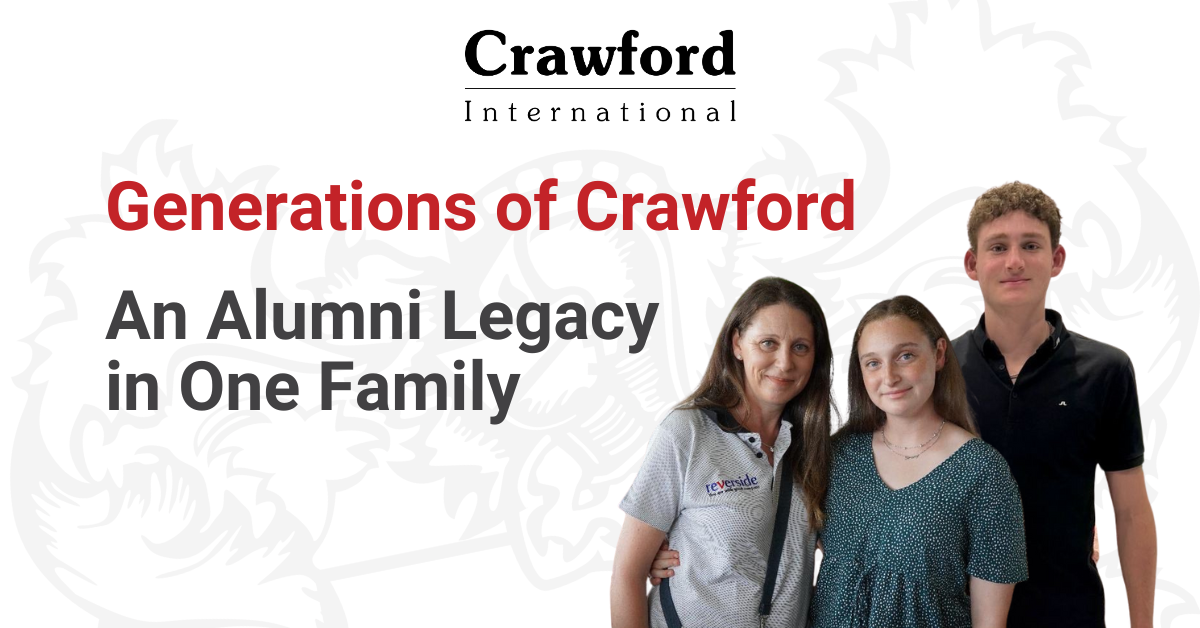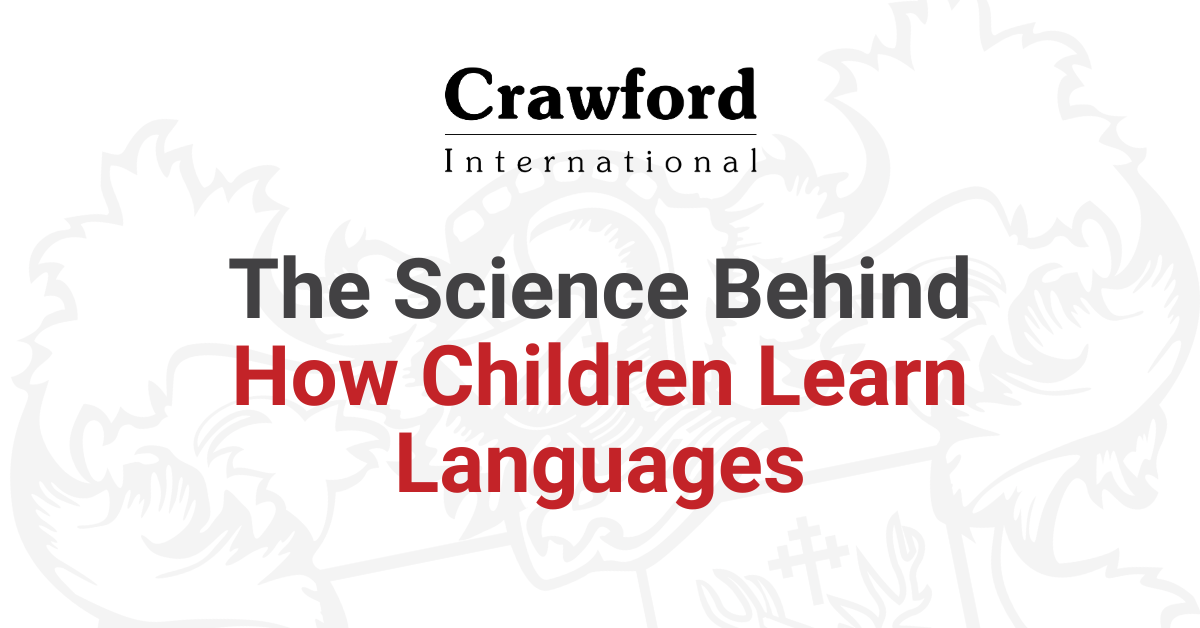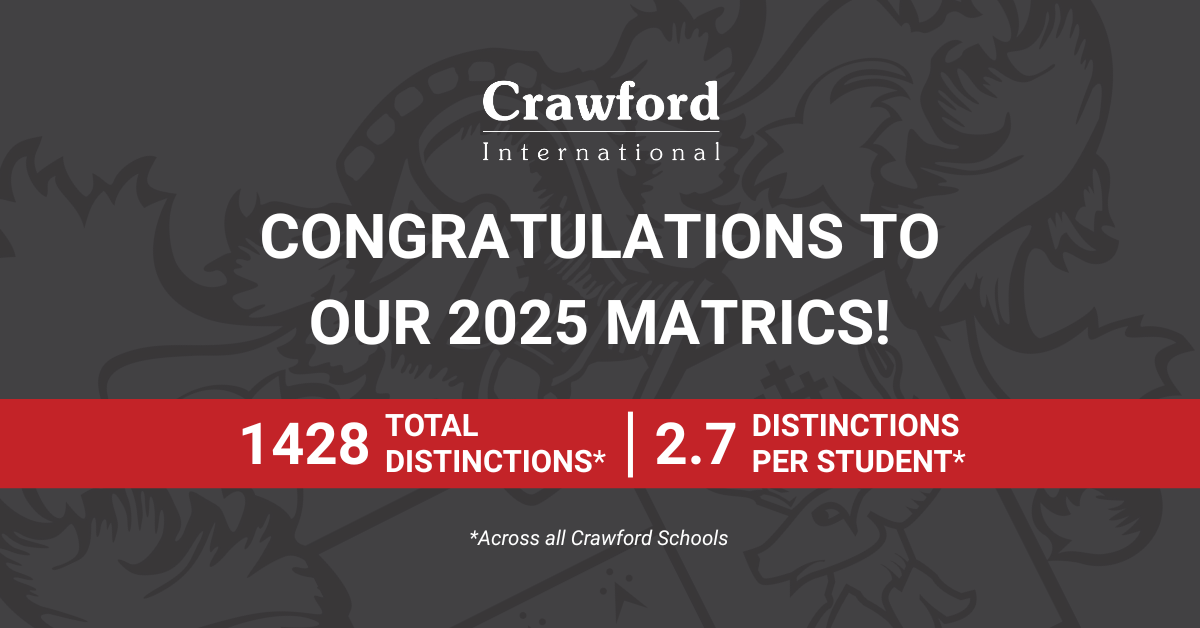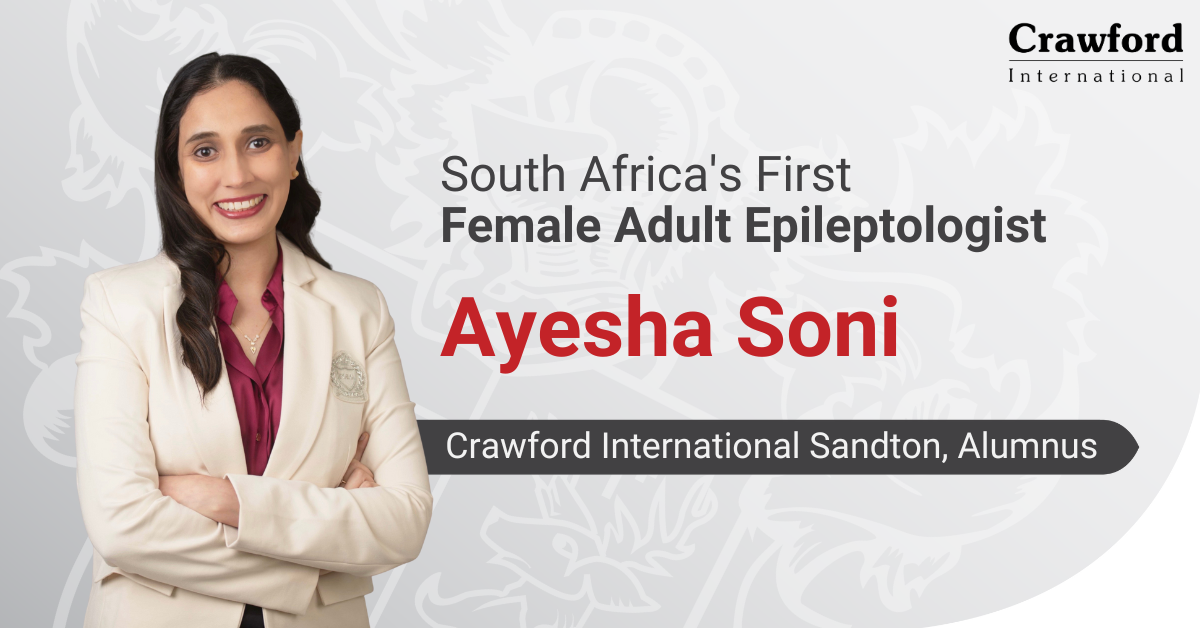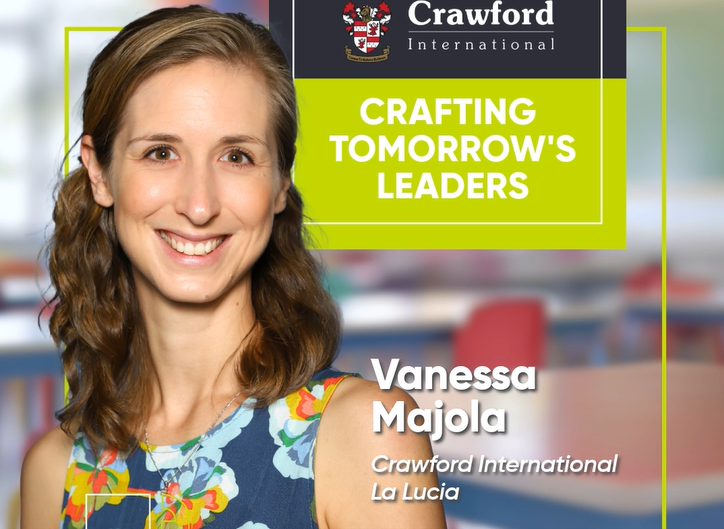Crawford International Bedfordview
Karabo Molokomme • August 30, 2023
Grade 4 Update: Learning and Fun Ahead
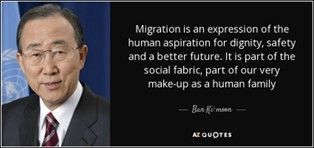
Time is flying, and Grade 4 students are diving into exciting knowledge quests. They are gearing up to conduct interviews, channelling their inner Oprah Winfrey and David Letterman, to understand migration choices.
Exploring maps, the students had hands-on compass fun and even learned to make their own. A 'Day in the Life of a Grade 4' welcomed parents, who joined Unit of Inquiry lessons, including a refugee's journey via virtual reality. Brain Buster sessions tested knowledge with puzzles, riddles, and anagrams, sparking family fun and learning.
Camp letters brought smiles – creating lifelong memories is what school is about. The Grade 4s anticipate this special event, cherishing the bonds, learning, and sense of community school brings
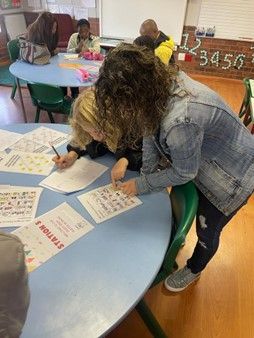
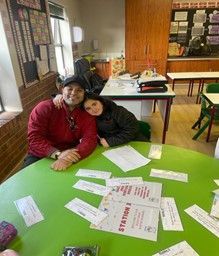
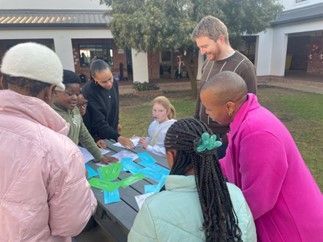
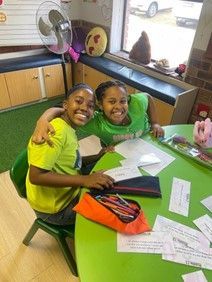
Women's Day Celebration: Empowering Impact
A fantastic Women's Day event on August 8th celebrated impactful women who break barriers and inspire change. Inspirational talks by our Managing Director, Dr Siza Majola, Dr Lara Cook, Advocates Lucia Mashiane, Ms. Leh Magaseng-Makolare, and Simone Stucke were captivating.
The elegant tables showcased the power of community and influential women within our community, from local charity founders to global superstars and sportswomen. Excitement filled the air with prizes, delicious food, and wonderful company. Crawford students' performances were spectacular, including an emotional rendition by Lesedi Phasha from Bright Spark Foundation.
The Ladies Care Packs that were collected were donated to local charities – House Group, Bienvenu Shelter, Frida Hartley Women’s Shelter, and The Bright Spark Foundation – making a community impact. A big thanks to the incredible women who made this event a success.
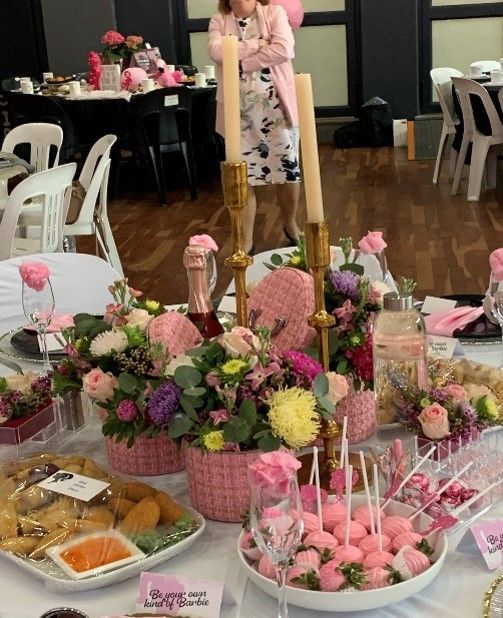
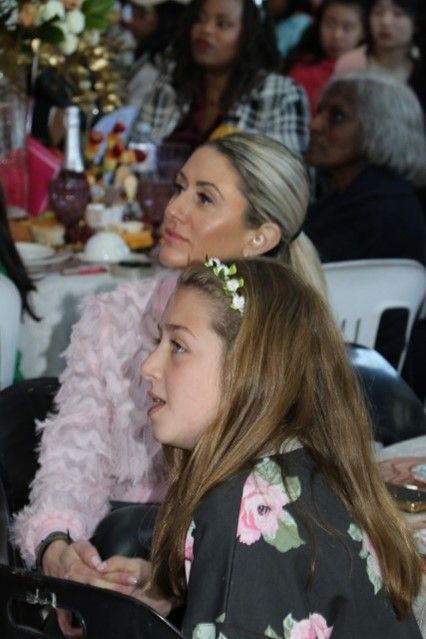
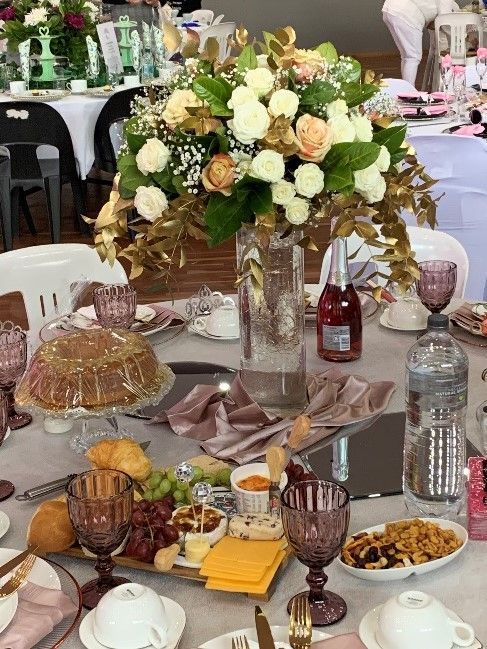
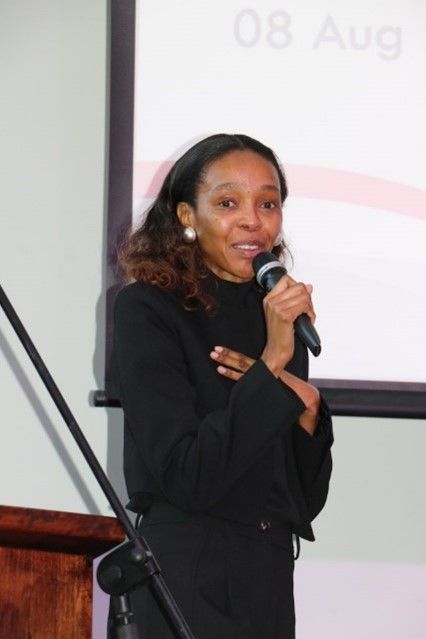
Exploring Traditional African Healing: A Journey Through Time and Medicine – Grade 6
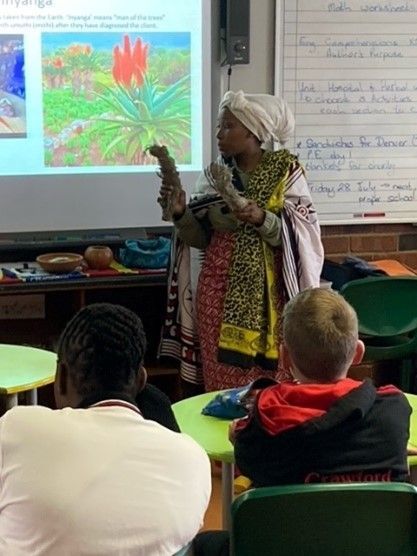
In the pursuit of comprehending the historical and cultural dimensions of medicine, students were fortunate to have the opportunity to learn about traditional healing practices from various regions of the world. As part of our unit, connecting with medicine through time, the grade 6 class recently had the privilege of hosting a guest speaker, Miss Ziggy Mamane, who shared valuable insights into traditional South African healing. This experience not only broadened their understanding of medicine's evolution but also provided a unique perspective on the rich heritage of healing practices in Africa.
Miss M, who has extensive knowledge of South African healing practices, captivated the class with her wealth of experience and passion for preserving traditional knowledge. Her presence offered a bridge between classroom learning and the lived experiences of healers in South Africa. By sharing her personal stories, she painted a vivid picture of the diverse healing methods employed across the continent.
The grade 6s learned about the role of traditional healers, often referred to as Sangoma’s and Inyanga’s, who act as intermediaries between the physical and spiritual realms. These healers employ a range of techniques, including herbal remedies, rituals, divination, and spiritual healing, to address the health concerns of their communities.
She also shed light on the cultural significance of healing ceremonies, such as the use of dance, music, and storytelling, which are integral to the healing process. Through these practices, communities strive to restore balance, foster harmony, and reconnect with their ancestral heritage.
Moreover, the students recognized the importance of cultural preservation and respect for diverse healing traditions. Learning about traditional South African healing prompted them to reflect on the significance of embracing different perspectives and valuing the wisdom embedded within indigenous knowledge systems.
The visit from Miss M was an enlightening experience that deepened the students understanding of medicine's historical and cultural dimensions. Exploring the practices and philosophies of traditional South African healers allowed us to appreciate the richness of diverse healing traditions throughout the world. This encounter not only broadened the students’ knowledge but also fostered an appreciation for the interconnectedness of medicine, culture, and time.
The use of VR in teaching
The integration of virtual reality (VR) technology in education has opened up new horizons for educators and students alike. Virtual reality head goggles, once confined to the realm of entertainment and gaming, have found a significant role in transforming the way we teach and learn. Learning is now extended outside of the classroom and allows students to learn anywhere and in a safe environment. This article delves into the multifaceted advantages of utilizing VR headsets in education, highlighting the current revolutionization of education, since the COVID-19 pandemic occurred.
One of the most remarkable aspects of virtual reality in education is its ability to magnify microscopic organisms, molecules and more. Through VR headsets, students can immerse themselves in a world where even the tiniest structures become grand and comprehensible. For instance, in biology classes, students can explore the intricacies of cellular components in a way that no textbook image could capture. A stark contrast from the manner in which we were taught, a mere 20 years ago, having had to draw diagrams from textbook images. This magnification effect not only sparks curiosity but also allows for a more profound understanding of subjects that would otherwise remain abstract concepts, peaking an interest amoungst students. When learning is made relatable and fun, more knowledge is committed to long-term memory. Such a visual enhancement can effectively bridge the gap between theoretical knowledge and its practical applications.
The introduction of virtual reality in education encourages the ability to offer personalized learning opportunities for students. No single pair of learners are the same, being able to teach them in a more personal and individual manner, may allow for more fruitful results. VR can adapt to individual learning styles and paces, providing tailored educational journeys for each student. One of its most significant advantages is the flexibility it offers – students can revisit challenging topics as often as needed, reducing the risk of falling behind. This adaptive learning process ensures that students grasp concepts thoroughly before moving on, fostering a strong foundation for advanced studies, as well as self-reflection on their learning journey. As VR technology continues to evolve, its potential to cater to diverse learning preferences is poised to reshape the traditional classroom paradigm.
Traditional classrooms often struggle to maintain students' engagement and attention, particularly when dealing with complex or abstract subjects, common in the sciences. This is where VR's immersive nature comes to the forefront. By creating an environment where students can interact with the subject matter, VR elevates the learning experience to unprecedented levels. Whether it's exploring the cosmos, walking through ancient civilizations, or delving into the inner workings of machinery, VR makes learning a captivating journey. This immersive approach enhances comprehension, as students can visualize and experience 3D models of complex concepts, leading to better retention and a deeper grasp of the material.
Experiential learning has long been considered one of the most effective teaching methods. However, real-world limitations often hinder its implementation. Virtual reality changes this dynamic by enabling students to step into environments and scenarios that might be otherwise inaccessible. Historical events, scientific phenomena, and even virtual field trips can be recreated in meticulous detail, allowing students to learn through hands-on experiences. Whether it's a biology student dissecting a virtual organism or a history student witnessing pivotal moments in time, VR provides a safe and controlled space for practical learning without real-world constraints.
In conclusion, the integration of virtual reality head goggles in education marks a significant advancement in the way we teach and learn. By magnifying minute structures, offering personalized learning experiences, immersing students in captivating environments, and enabling experiential learning, VR technology has the potential to reshape education into a more engaging, effective, and inclusive endeavor. As VR technology continues to advance, educators and students can look forward to a future where learning transcends the confines of the traditional classroom, opening doors to a world of limitless possibilities.

Lady Care Packs at the Leap Sciences and Maths Schools Initiative
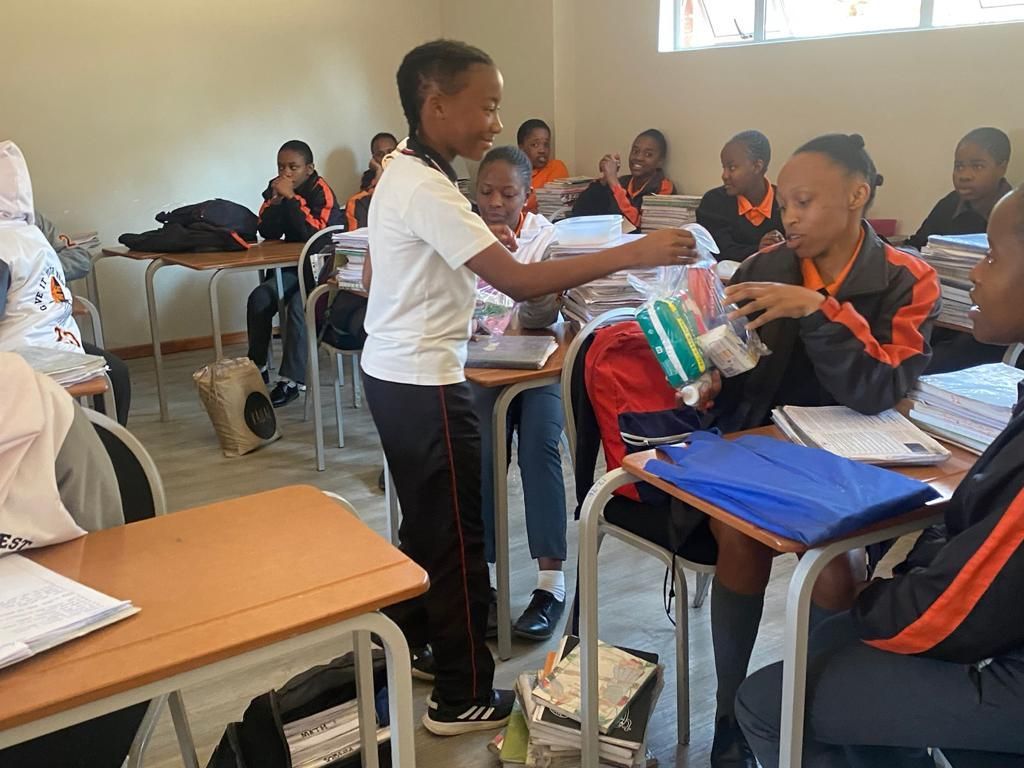
During our recent visit to Leap Sciences and Maths School for a charitable initiative, our students engaged in a meaningful experience. One notable activity was the donation of feminine products to the Grade 12 and 10 girls, contributing to their well-being and education. In addition to this, our students had the opportunity to learn about the school's garden, gaining insights into sustainable practices and the importance of environmental consciousness.
The Leap Sciences and Maths School impressively demonstrated to our students their designated space for open discussions, specifically addressing personal matters through the Life Orientation circle conducted in a circular format. This approach fostered a sense of unity and inclusivity. It was evident that some students faced challenges in Mathematics, prompting our team to explore ways to provide assistance in this subject. Overall, the experience at Leap Sciences and Maths School was enlightening and inspiring, leaving a positive impact on both the learners from our group and the students.
